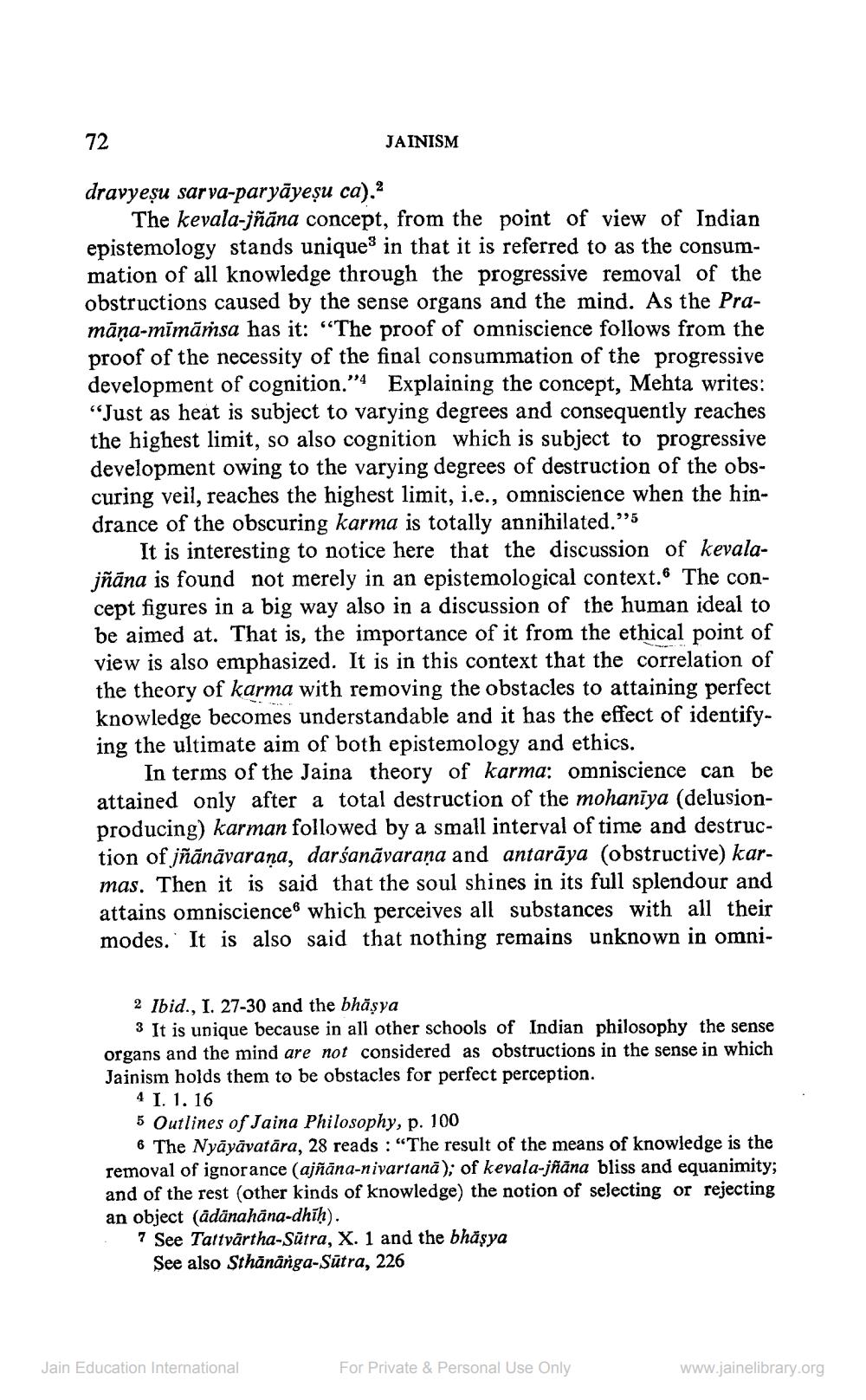________________
72
JAINISM
dravyeșu sarva-paryāyeșu ca).
The kevala-jñāna concept, from the point of view of Indian epistemology stands unique in that it is referred to as the consummation of all knowledge through the progressive removal of the obstructions caused by the sense organs and the mind. As the Pramāņa-mīmāṁsa has it: "The proof of omniscience follows from the proof of the necessity of the final consummation of the progressive development of cognition.” Explaining the concept, Mehta writes: “Just as heat is subject to varying degrees and consequently reaches the highest limit, so also cognition which is subject to progressive development owing to the varying degrees of destruction of the obscuring veil, reaches the highest limit, i.e., omniscience when the hindrance of the obscuring karma is totally annihilated."5
It is interesting to notice here that the discussion of kevalajñāna is found not merely in an epistemological context. The concept figures in a big way also in a discussion of the human ideal to be aimed at. That is, the importance of it from the ethical point of view is also emphasized. It is in this context that the correlation of the theory of karma with removing the obstacles to attaining perfect knowledge becomes understandable and it has the effect of identifying the ultimate aim of both epistemology and ethics.
In terms of the Jaina theory of karma: omniscience can be attained only after a total destruction of the mohanīya (delusionproducing) karman followed by a small interval of time and destruction of jñānāvaraṇa, darśanāvaraṇa and antarāya (obstructive) karmas. Then it is said that the soul shines in its full splendour and attains omniscience which perceives all substances with all their modes. It is also said that nothing remains unknown in omni
2 Ibid., I. 27-30 and the bhăşya
3 It is unique because in all other schools of Indian philosophy the sense organs and the mind are not considered as obstructions in the sense in which Jainism holds them to be obstacles for perfect perception.
4 1. 1. 16 5 Outlines of Jaina Philosophy, p. 100
6 The Nyāyāvatāra, 28 reads : “The result of the means of knowledge is the removal of ignorance (ajñāna-nivartanā); of kevala-jñāna bliss and equanimity; and of the rest (other kinds of knowledge) the notion of selecting or rejecting an object (ädänahāna-dhīḥ).
7 See Tattvārtha-Sutra, X. 1 and the bhäşya
See also Sthānanga-Sūtra, 226
Jain Education International
For Private & Personal Use Only
www.jainelibrary.org




